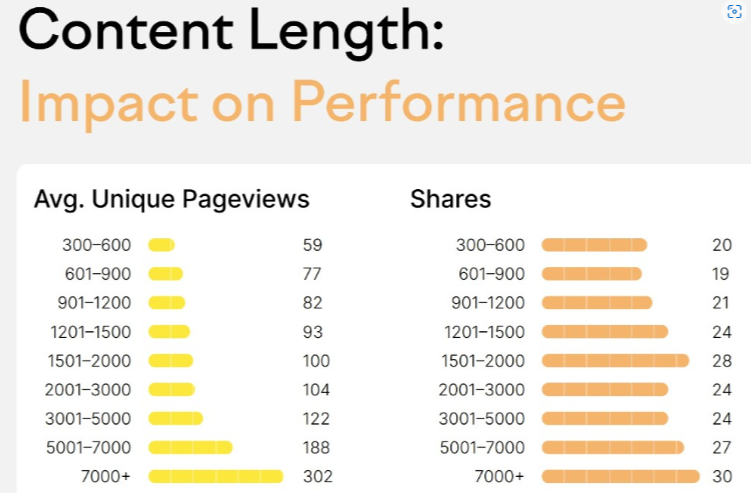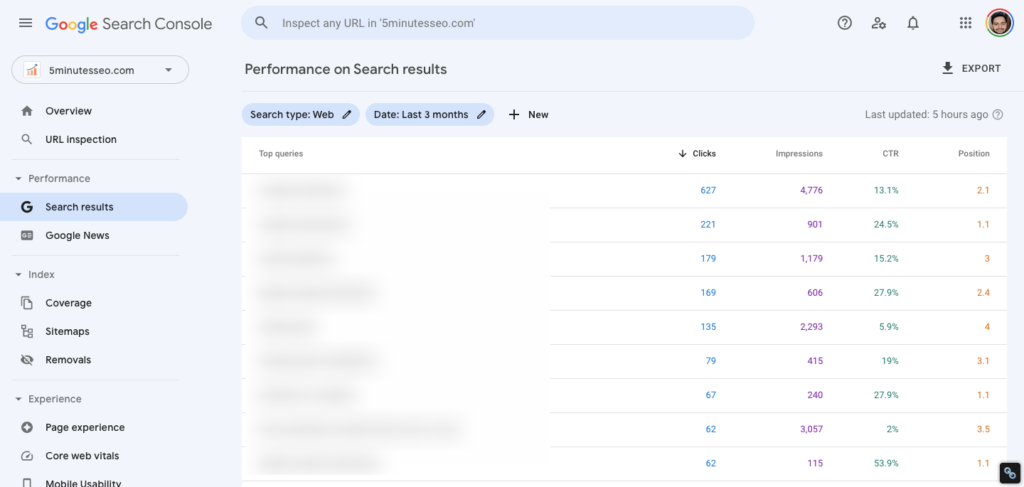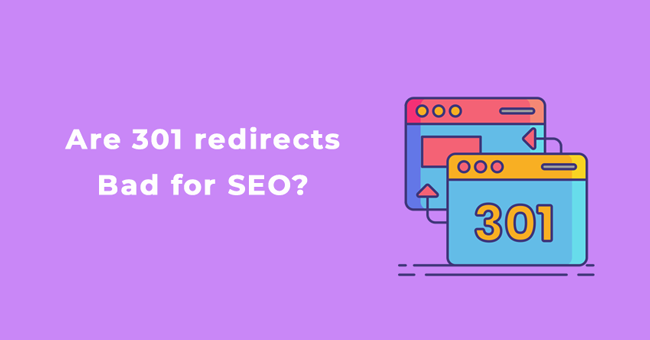Until some time ago, I also use to wonder what should be the word count or length of my articles.
At times I felt I should write long-form articles at times I thought I should write to-the-point articles, but I didn’t have a satisfactory answer for myself.
After almost 5+ years of publishing lots & lots of content & analyzing SERPs for various keywords now I do understand what should be an ideal word count for articles so that they rank well.
BTW, every time it’s not necessary to write 2000 words articles to perform well in SERPs.
In this article, I will discuss what is the best word count for articles for SEO copywriting and the pros and cons of longer versus shorter blog posts.
If you are in hurry then click on this jump-link to know => how long your content should be?
Does Word Count Matter in SEO
Yes, word count matters in SEO. But it is not the only factor that can help your website rank higher. When asked on Reddit, Google’s John Mueller said that word count is not the criteria for the search algorithm.
Google’s algorithms look for original and top-quality content rather than the number of words on a web page.
But then you might be thinking about why the popular SEO tool SEMrush report suggests that long-form articles perform better than short-form content. There are a few reasons long-form articles may improve your ranking indirectly.
- Writing long-form content makes it easier for Google search engines to figure out what your webpage is about.
- With longer content, the readers can get all the information in one place. They don’t need to jump from one website to another to get the information they want.
- With long-form content, you can target a wide range of keywords, which can increase your website’s traffic.
- Long-form content can attract links and become reference material.
What is the Ideal Word Count for SEO
There is no definite rule to follow when it comes to the ideal or minimum word count for a webpage. Time and again, Google has highlighted the importance of quality content that focuses on delivering correct information rather than a voluminous one.
But you can check your keywords and past performance to determine the ideal word count for your page. Here are a few other factors that will help you in determining the best word count for SEO.

Best Word Count When it Comes to the Number of Backlinks Generated
When it comes to the number of backlinks and shares generated, the optimal length is 1,200 words.
The articles in this range generate 1.5x more backlinks and record 20% more shares than articles with less than 500 words.
However, if your article is longer than 1,200 words, it won’t affect the ability to garner backlinks and shares that much.
Ideal Content Length for Landing Pages
Landing pages aim to drive conversions. Therefore, the ideal SEO word count for landing pages should be about 500 words. You should provide adequate information to inform and engage the readers within this word limit.
Product Pages
Effective product pages have a compelling copy and attractive images. To showcase your product in a concise and aesthetically pleasing manner, avoid excessively long descriptions. A good word count for product descriptions is around 300 words.
Educational Content
This kind of content tends to be longer as it contains more information. You’re teaching someone about a product, process, or idea they’re unfamiliar with. Therefore, it’s best to aim for around 2,000 words.
Study on an Average Number of Words Top 10 Results Have
In April 2020, Backlinko published a report stating that
Google first SERP results had an average word count of 1447.
- If you are writing an introduction to an infographic or a video, write between 300 to 500 words.
- Your article should be 500 to 1,500 words long if you want an average article or blog post.
- If you want to generate more leads, rank higher in search results, and increase your chances of getting shared on social media, write between 1,500 to 3,000 words.
How to Determine the Ideal Word Count for Your Content
Copy length should not be dictated by word count. It can be as long as required to convey the message of the page.
Look at your competition, keyword research, and user intent to determine your content’s average word count range.
Search Your Targetted Keyword in SERPs
When it comes to knowing the minimum word count for webpage it’s all about searching the keywords you’re targeting.
Search for the top ten ranking pages for your target keyword on Google.
You can use the tools like:
or
to determine the word count of pages in SERPs.
With the help of these tools, you can get an overview of the number of words the top-ranking pages are having. Take out the average word count and write accordingly.
Analyze Your Competition
Competitive content analysis is the best way to stay ahead of your competition.
You can use content optimization tools like SurferSEO or SEMrush to get an idea of the word count of the top-performing articles for a particular keyword.
or…
You can manually look at the various articles on Page 1 & check which sections they have covered in the article. Focus on covering relevant headings & sub-headings (or topics), in your article & write accordingly & you can simply forget worrying about "ideal word count".
Satisfy the Search Intent
While deciding the best word count for seo, think about what your target audience is looking for when they type a specific keyword into the search bar. 49% of marketers are creating content that aligns with the buyer’s intent and perception.
So don’t write fluffed-up long pieces if your target audience is looking for comprehensive information.
For example, if your audience wants to know about the “SEO audit for a website“, don’t write an article that talks about SEO audit importance in 700 words. This type of content fails to satisfy the search intent.
Look at Your Past Performance
You can access your past article performance in the Google Search Console to determine the content length that works best for you. Identify which articles are ranking higher and the ones that are ranking low. If your shorter articles aren’t performing well, you can lengthen the content with relevant and useful information.

How to Write a Quality Content Post
If you want to create content that ranks well on Google and funnels customers or paying clients to your online business, you must consider these tips.
Craft a Catchy Headline and Use Sub-headings
If 100 people visit your site, 80 of them will first read your headline, and only 20 will read the rest. So craft a headline that makes people stop whatever important they’re doing to read your content.
You should also use subheadings to improve your content’s scannability. You can use multiple headings in your article to dedicate specific sections to each topic or idea. This prevents the post from looking like a long block of text.
Don’t Use Fillers
Never use unnecessary fluff to achieve your target word count. Always proofread your article to cut out fillers. Your article should only have valuable content for the readers.
Provide Information that Readers Want
Imagine you searched for digital marketing strategies on Google and came across an article that has a bunch of information about affiliate marketing.
You probably won’t visit that site in the future. That is why it is crucial to figure out what your target audience wants from your content before you start writing it.
Write Original Content
Your content needs to be original to rank in the SERPs. Remember, search engines filter out duplicate content. So think about how you can offer something different and better than your competitors.
Do some keyword research to know what your competitors are up to and what your audience searches for. Finally, create a compelling copy that is valuable and informative to your audience.
Include Actionable Tips
The goal of your content should be to ensure readers learn something valuable. By doing this, you will compel the readers to share your article. They might even download gated content or sign up for your newsletter or mailing list.
Let’s Sum it up: Does Word Count Matter for SEO?
The answer to this question depends on the type of content you’re creating and your audience.
However, quality articles with high word counts rank higher than shorter pieces because they thoroughly answer the readers’ questions. But increasing the word count of your article by adding filler just to achieve a certain target is not going to help you gain SERP positions.
It can even dilute the quality of the information, and you might lose the SEO advantage. Remember, all your words should provide information and value to your readers.





